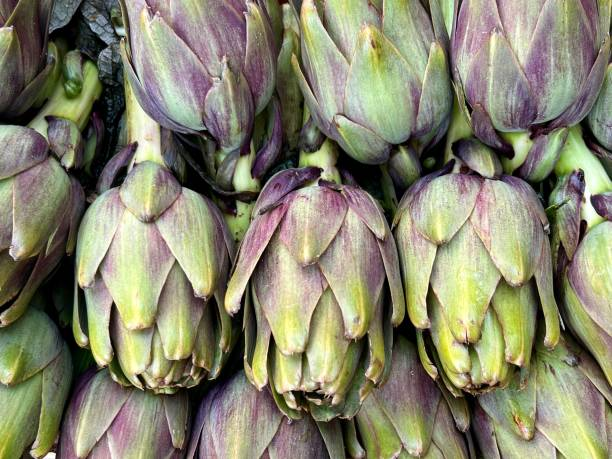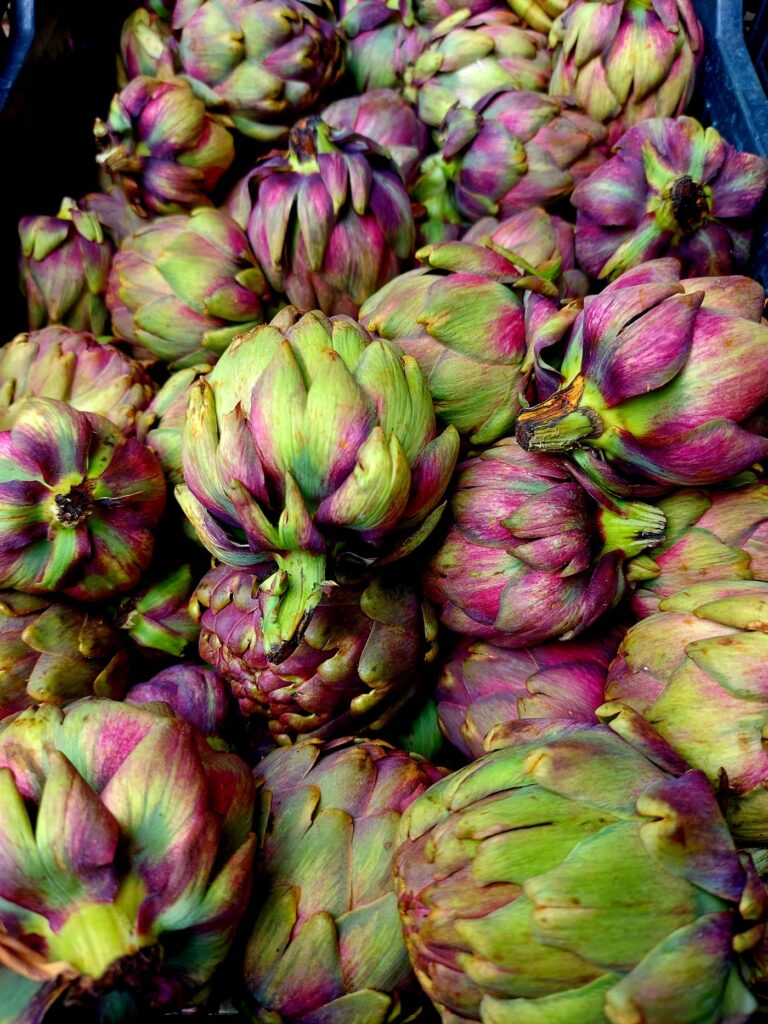What to Eat and Drink
Artichokes: The Ultimate Superfood for Boosting Your Well-Being!
Artichokes have earned a strong reputation in the health food industry, with many labeling them as a superfood. But what makes these prickly vegetables so unique? In this article, we will explore the world of artichokes to see if they truly merit their superfood label.
What are Artichokes?
Artichokes, scientifically known as Cynara cardunculus var. scolymus, are thistle-like vegetables from the sunflower family. Artichoke, which originated in the Mediterranean region, have been farmed for generations and are now popular all over the world. The main edible portion of the artichoke is the fleshy base of the flower bud, which is covered in layers of leaves.

Nutritional Benefits of Artichokes
Artichokes are a nutritious powerhouse, containing all of the vital components. They are high in vitamins C and K, as well as nutritional fiber, making them an excellent supplement to a nutritious diet. Vitamin C is a potent antioxidant that strengthens the immune system and increases collagen formation, resulting in healthy skin. Vitamin K promotes blood coagulation and bone health. Artichoke also include dietary fiber, which assists digestion and promotes gut health.
Artichokes are also high in antioxidants like cynarin and silymarin, which assist the body fight free radicals and reduce inflammation. These antioxidants have been linked to a variety of health advantages, including better liver function and reduced cholesterol levels. Furthermore, artichoke include minerals such as magnesium, potassium, and iron, which are required for normal physical function.
Health Benefits of Artichokes as a Superfood
Artichokes have been commended for their possible health advantages, which help to justify their superfood reputation. One of the primary advantages is their capacity to promote liver health. The antioxidants in artichokes can help protect the liver from toxins and improve its overall function. According to studies, artichoke extract can also help relieve symptoms of liver illnesses including jaundice and hepatitis.
Artichokes have another major health benefit: they improve digestion. Artichokes’ high fiber content can help regulate bowel movements, avoid constipation, and enhance overall digestive health. Artichokes also contain chemicals known as inulin and oligofructose, which act as prebiotics, nourishing beneficial bacteria in the gut and promoting a healthy microbiome.
Artichoke has also been linked to good heart health. The antioxidants in artichokes assist to lower oxidative stress and inflammation, both of which are risk factors for cardiovascular disease. Furthermore, artichoke’s high potassium content promotes healthy blood pressure levels. According to studies, ingesting artichoke extract can help lower cholesterol and reduce the risk of cardiovascular disease.

Artichokes and Weight Loss
If you’re trying to lose weight, artichokes can be an excellent addition to your diet. Artichokes are low in calories and fat, but high in fiber, which promotes satiety and keeps you feeling full for longer. The substantial fiber content also delays digestion, avoiding blood sugar spikes and supporting energy balance.
Furthermore, artichokes have a diuretic effect, which means they can reduce water retention and bloating, leaving you feeling lighter and less puffy. Artichokes are a terrific choice for weight-conscious people who want to consume good meals without sacrificing their goals because they are low in calories and high in nutrients.
How to Incorporate Artichokes into Your Diet
Now that we’ve covered the multiple health benefits of artichokes, let’s look at some creative ways to incorporate them into your diet. Whether you’re a seasoned artichoke enthusiast or a beginner, these ideas will undoubtedly inspire you to start cooking:
- Steamed Artichokes with Lemon Butter: Start by trimming the artichoke leaves and steaming them until tender. Serve with a side of melted lemon butter for a simple and flavorful appetizer.
- Artichoke and Spinach Stuffed Chicken: Make a pocket in a chicken breast and stuff it with a mixture of cooked artichoke hearts, spinach, and feta cheese. Bake until the chicken is cooked through and enjoy a delicious and protein-packed meal.
- Artichoke and Quinoa Salad: Toss cooked quinoa with chopped artichoke hearts, cherry tomatoes, cucumber, red onion, and a lemony vinaigrette for a refreshing and nutritious salad.
- Artichoke and Goat Cheese Tart: Roll out puff pastry and top it with a mixture of cooked artichokes, goat cheese, and herbs. Bake until golden brown and serve as a delightful appetizer or main course.

Potential Side Effects and Precautions
While artichokes provide various health benefits, it is vital to be aware of potential side effects and take appropriate measures. Some people may feel stomach discomfort, such as gas or bloating, after eating artichokes. This is because they are high in fiber and contain chemicals that some people find difficult to digest.
Furthermore, if you are sensitive to other plants in the Asteraceae family, such as ragweed or chrysanthemums, you may have a stronger reaction to artichokes. If you feel itching, hives, or difficulty breathing after eating artichokes, you should see a doctor.
Other Superfoods to Include in Your Diet
While artichokes have numerous health benefits, it is crucial to realize that no single meal can fix all health problems. Variety is essential for maintaining a well-balanced diet. Here are some other superfoods you may include in your diet to increase your nutritional intake:
- Blueberries: Packed with antioxidants, fiber, and vitamins, blueberries are known for their potential to improve brain health and reduce the risk of chronic diseases.
- Salmon: Rich in omega-3 fatty acids, salmon is a heart-healthy superfood that supports brain function and reduces inflammation.
- Kale: This leafy green is a nutritional powerhouse, loaded with vitamins, minerals, and antioxidants. It is known for its potential to support eye health and boost the immune system.
- Chia Seeds: These tiny seeds are packed with fiber, protein, and healthy fats. They can help promote satiety, regulate blood sugar levels, and support digestive health.
Conclusion
In conclusion, artichokes are undoubtedly a nutritious and versatile vegetable that offers a range of health benefits. Their high vitamin and fiber content, along with their antioxidant properties, make them a valuable addition to my well-rounded diet. However, I’ll approach the superfood label with caution, recognizing that while artichokes provide vital nutrients, no single food can solve all health issues. Variety is key when it comes to maintaining a balanced and healthy diet.
So, are artichokes a superfood for me? The answer lies in their unique combination of nutrients and potential health benefits. They certainly deserve recognition for their liver-protective properties, digestive benefits, and contribution to weight loss efforts. Incorporating artichoke into my diet can be a delicious and nutritious way to support my overall well-being, but I’ll remember to enjoy them in conjunction with a diverse range of other superfoods for optimal health.
Trusted Health, Wellness, and Medical advice for your well-being


